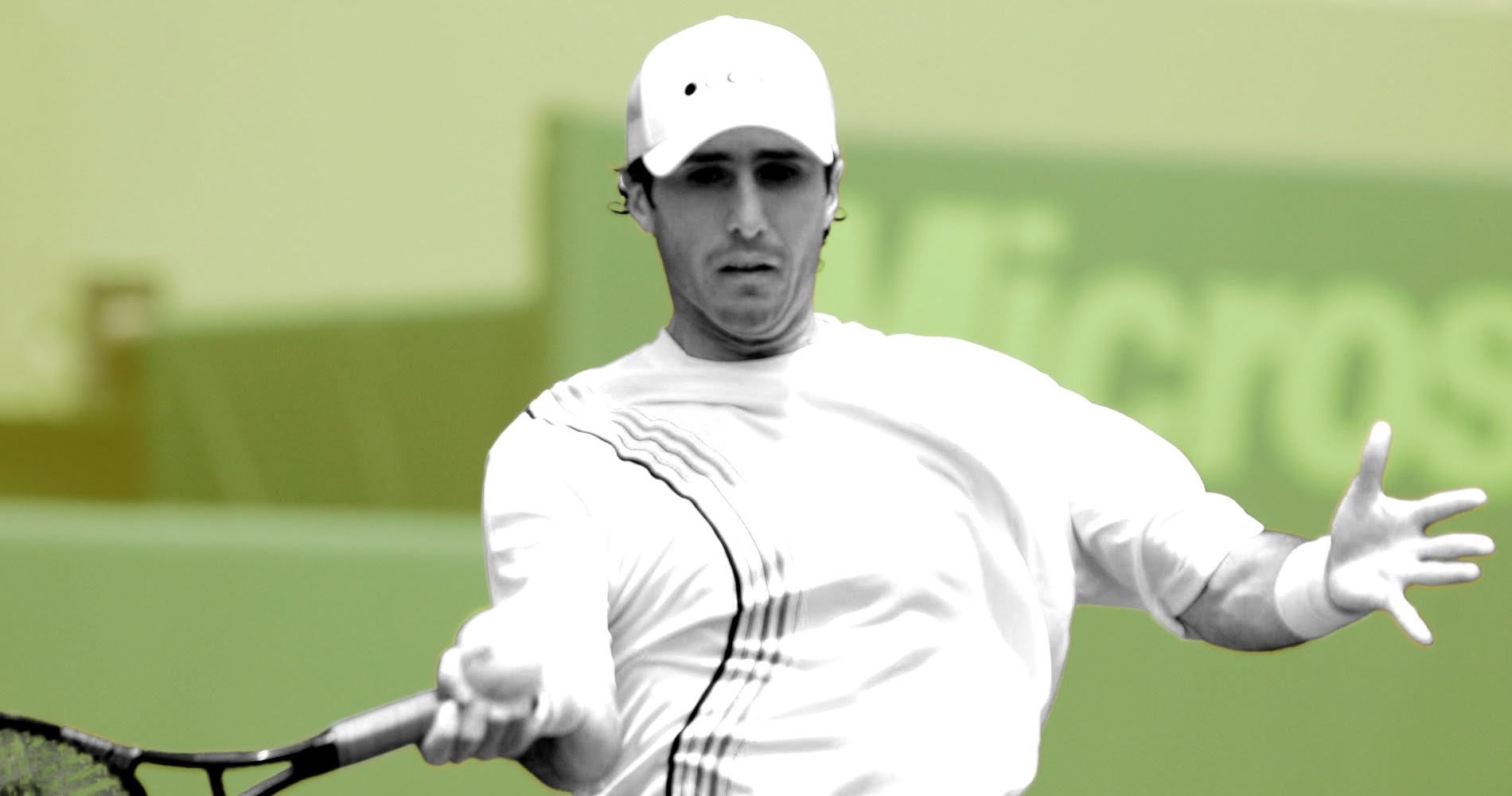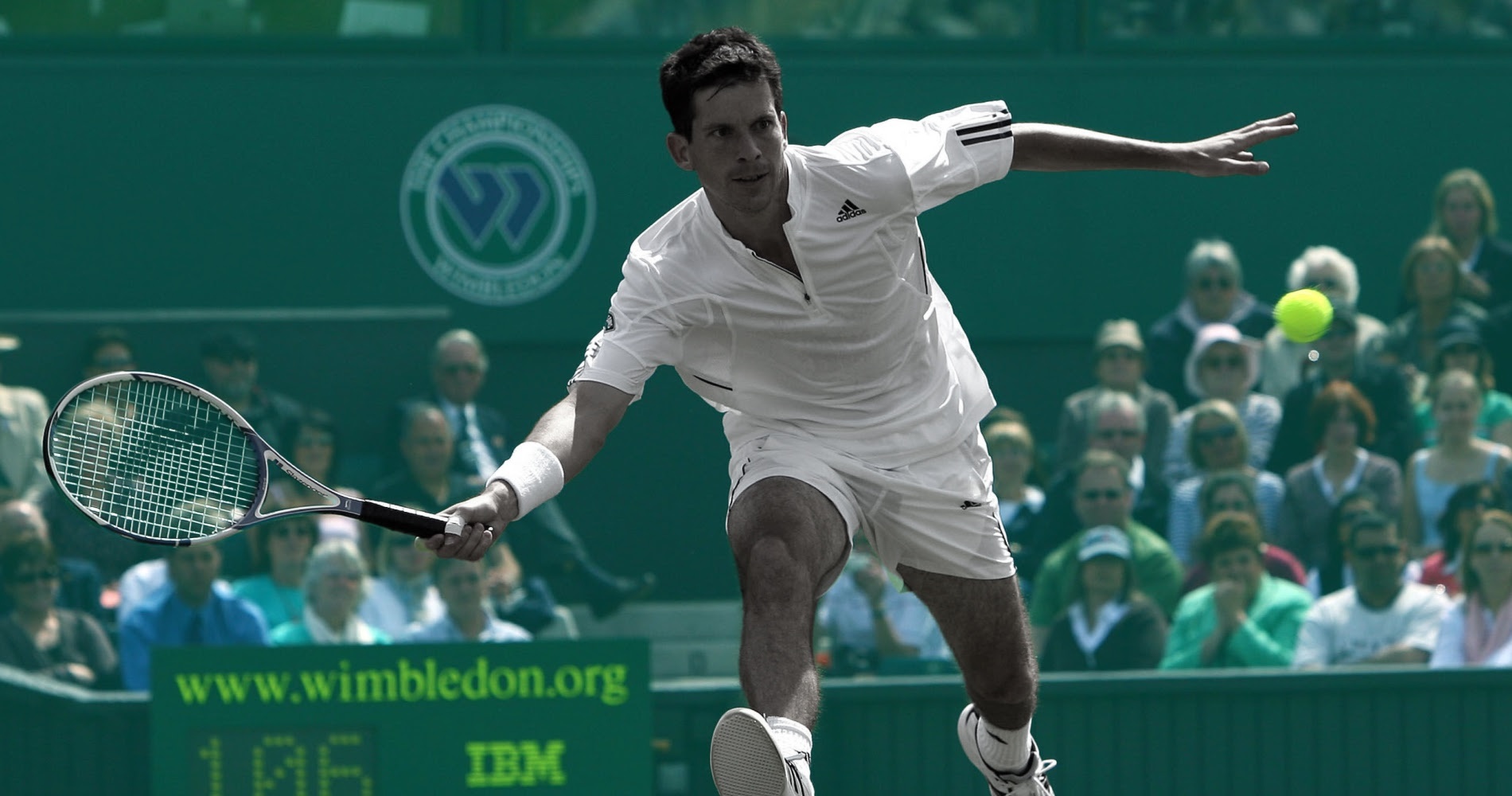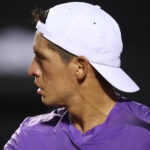June 26, 2000: The day Vince Spadea ended a run of 21 straight defeats
Every day, Tennis Majors takes you back in time to relive a tennis event which happened on this specific day. On June 26, 2000, Vince Spadea won a match for the first time in seven months, ending the longest losing streak in tennis history
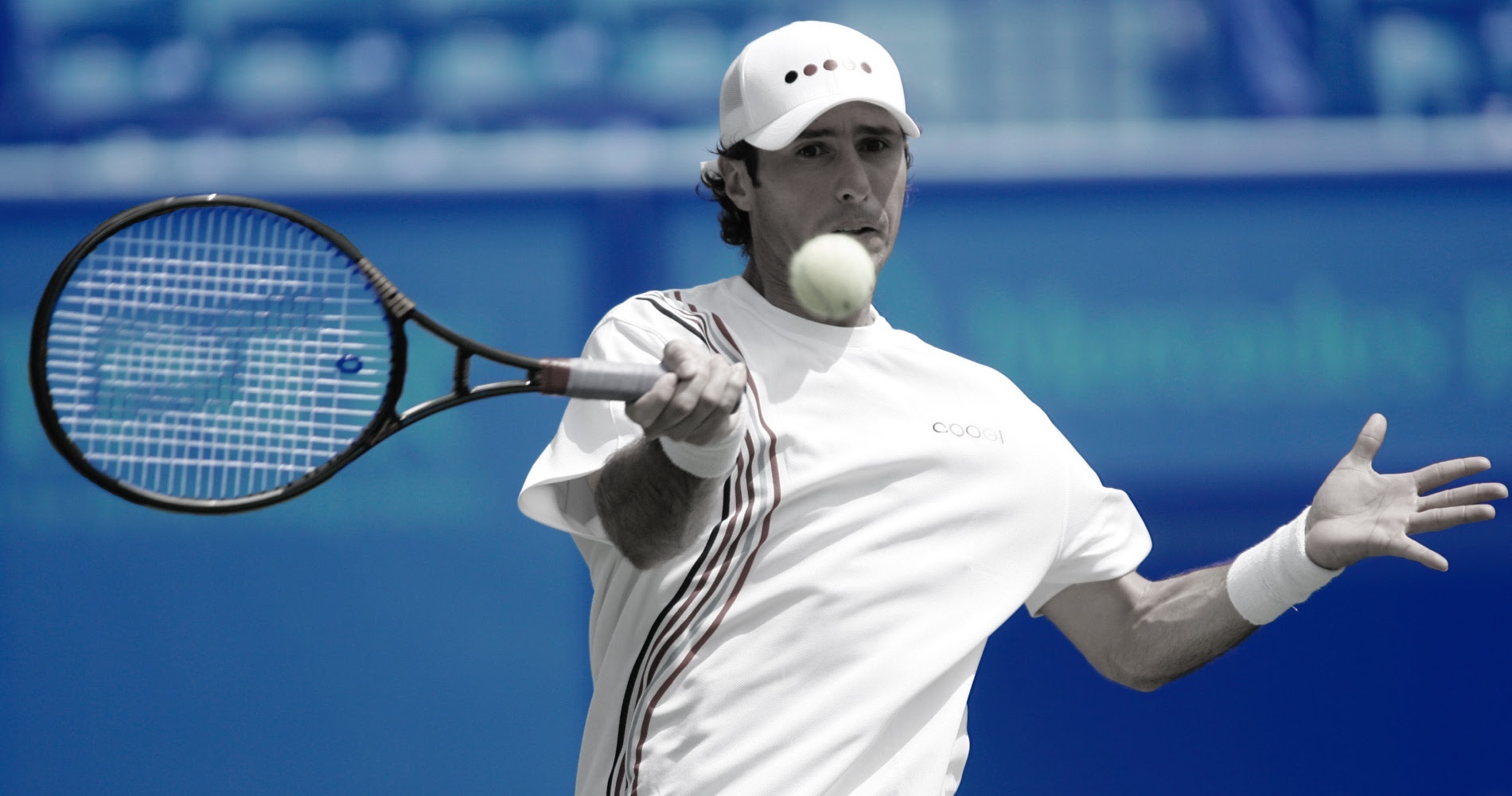 Vince Spadea – On this day
Vince Spadea – On this day
What happened exactly on that day?
On this day, June 26, 2000, Vince Spadea put an end to his record 21-match losing streak, edging Greg Rusedski in the first round of Wimbledon (6-3, 6-7, 6-3, 6-7, 9-7). The American had not won a single match on the Tour since his victory over Yevgeny Kafelnikov in the quarter-final of the Lyon Open, in October 1999.
The players
- Vince Spadea, failing to live up to the expectations of his 1999 season
Vince Spadea, born in 1974, turned pro in 1993. After entering the top 100 in 1994, he established himself as a regular top 50 player, reaching the fourth round at the 1995 US Open (defeated by Petr Korda, 6-2, 7-5, 6-4), and reaching the final in Sankt Pölten in 1998 (lost to Marcelo Rios, 6-2, 6-0).
His best season so far had been 1999, as he made his way to the quarter-finals of the Australian Open (lost to Tommy Haas, 7-5, 7-6, 6-3), and reached a second final on the tour, in Indianapolis (defeated by Nicolas Lapentti, 4-6, 6-4, 6-4).
At the end of the year, while he reached his best ranking ever in October as world No 19, he lost to Lleyton Hewitt in the semi-final in Lyon, thus starting what would eventually become the longest losing streak in professional tennis history. In June 2000, at the start of Wimbledon, his ranking had dropped to No 61.
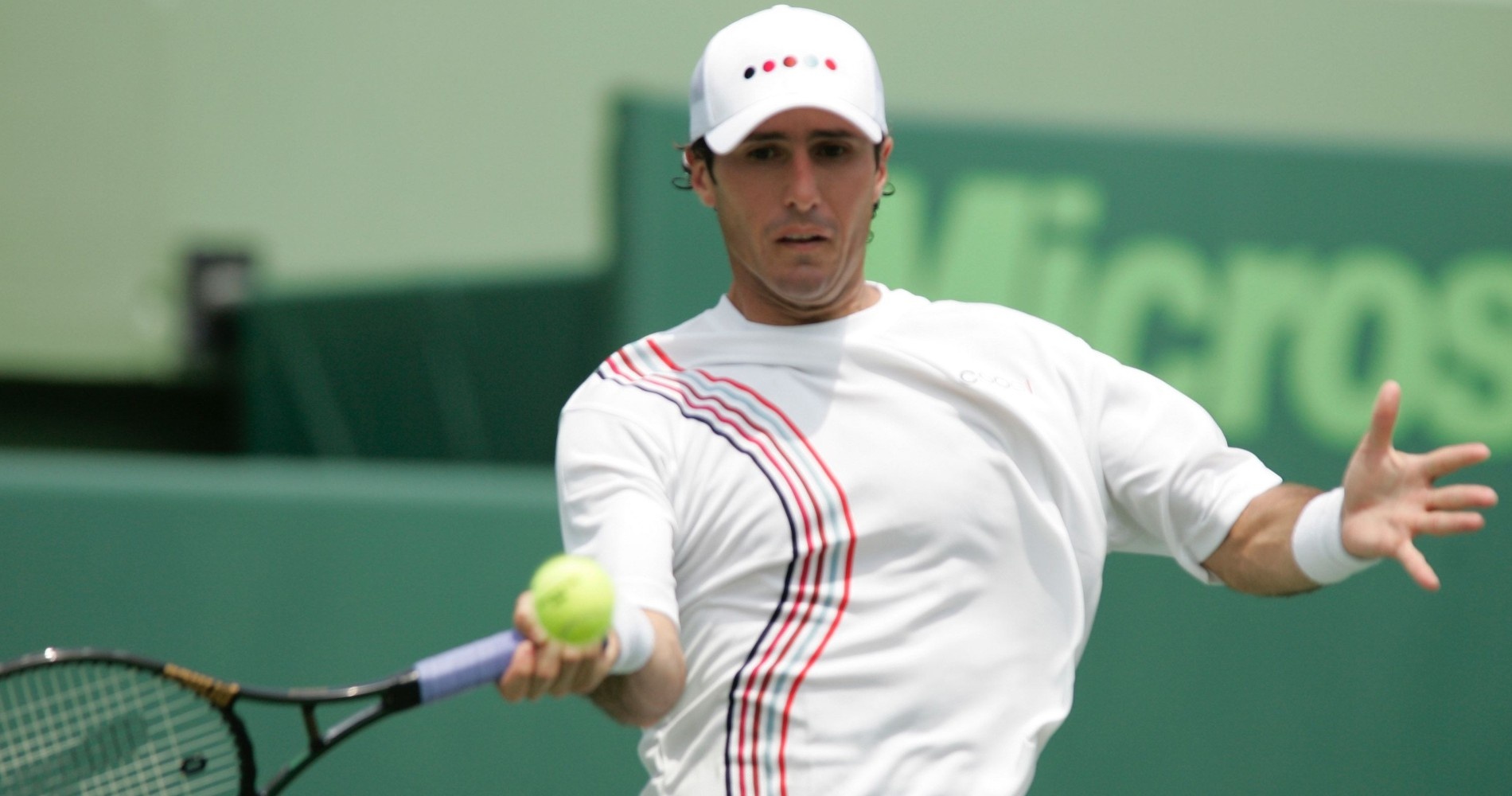
- Greg Rusedski, a grass court specialist
Greg Rusedski, born in 1973, was left-handed and his serve and volley game depended on his massive serve. After entering the top 100 in January 1995, his first remarkable result in a Grand Slam tournament was a fourth-round reached at Wimbledon the same year where he was defeated by the future champion Pete Sampras (6-4, 6-3, 7-5).
He had claimed nine titles before, the first in Newport, on grass, in 1993, and the most important in 1998, in Paris-Bercy, where he beat Sampras in the final, for the only time in 10 encounters (6-4, 7-6, 6-3). The same year, he fired the then-fastest serve in tennis history, at 149mph.
His peak year had been 1997, where he claimed a title on grass in Nottingham, edging Karol Kucera in the final (6-4, 7-5). Rusedski then achieved the two best Grand Slam results of his life, by reaching the quarter-finals at Wimbledon (defeated by Cédric Pioline, 6-4, 4-6, 6-4, 6-3), and above all, the US Open final which he lost to Patrick Rafter (6-3, 6-2, 4-6, 7-5). In June 2000, he was world No 22.
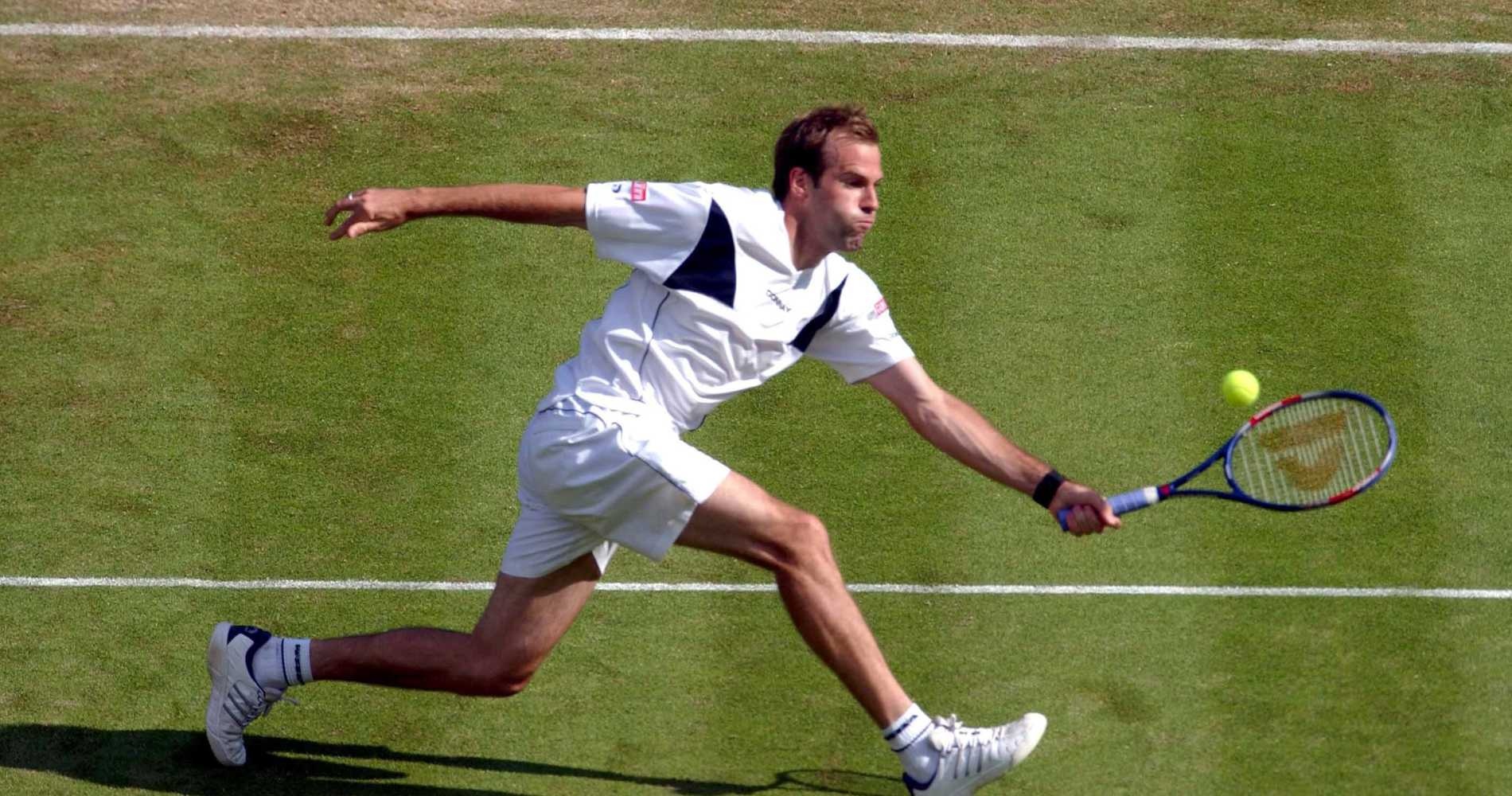
The place: Wimbledon
Wimbledon is the oldest and the most prestigious tennis tournament in the world. Held by the All England Lawn Tennis and Croquet Club since 1877, it moved into its current location in 1922, the same year when the Centre Court was built.
After the US Open switched to clay and then hard courts in the 1970s, and after the Australian Open switched to hard courts in 1988, Wimbledon remained the only Grand Slam tournament to be played on grass, a surface that is usually more suitable for serve and volley players. Not only did Wimbledon keep its surface, but it also maintained old-fashioned traditions such as the white dress code.
The facts
In October 1999, Spadea finished his best season on the tour and was ranked No 19. There was no reason for him to worry after he lost to Hewitt in the semi-final in Lyon (6-3, 6-3). The next week, his loss against Mariano Zabaleta in the first round in Stuttgart (6-4, 3-6, 6-1) probably didn’t shake his confidence. Even when he ended the year with a fourth consecutive loss, this time in the first round in Moscow, against Jeff Tarango (6-4, 7-6), he might just have thought that he was exhausted after a great but long season.
Seven months later, in June 2000, his views on the issue had certainly changed: after 17 more losses, without a single victory, he now held the record of the longest losing streak in professional tennis history. He had travelled all around the world – Australia, USA, Europe – during the first half of the year, winning only eight sets. Three times, he had been defeated by players ranked outside the top 100. Needless to say, he was not particularly confident before facing a big server like Rusedski in the first round at Wimbledon. From his own words, Spadea’s first thought when he saw the draw was: “ Let’s get the heck out of this town”.
The British player made a catastrophic start, serving six double faults in his first game, and Spadea took the first set, 6-3. Although Spadea broke Rusedski’s serve again early in the second set, the lefty broke back and at 5-5, the rain sent them both back to the locker room. After they came back, Rusedski sealed the second set 7-6. The two next sets ended with the same mark: 6-3 again for Spadea, then 7-6 for Rusedski, who, unusually struggling with his serve, had to save two match points in the fourth set.
In the last set, Vince Spadea eventually managed to seal the victory, 9-7, on his fourth match point, after almost four hours of play. This was the only right way to end his losing streak: a five-set thriller. He was obviously relieved after this unexpected win.
“My parents left and went home two days ago. I think they saw the draw and thought ‘Vince, man…’ But I knew I could rise to the big occasions, beat the big players, and this was one of those days. I’ve got a lot of character and I was a ready for whatever was going to happen. Now I’ve got to organise some practise and cancel flights, but it was an amazing experience to go out there on a big court and win.”
What next
Spadea would be well-beaten in the second round at Wimbledon by Albert Portas (6-4, 6-3, 6-3). The second half of his 2000 season would not be much greater than the first one. He would win only two matches on the main draw and would see his ranking drop to world No 237 in October.
He would have to compete on the Challenger tour to climb back in the top 100 only in February 2002. In 2004, Vince Spadea would claim his first title on the main tour, defeating Nicolas Kiefer in the final in Scottsdale (7-5, 6-7, 6-3). Almost 12 months later, in February 2005, he would reach his highest ranking as world No 18.
Greg Rusedski would never go past the fourth round of a Grand Slam tournament again. Remaining a solid top 50 player, especially on fast courts, he would claim the last of his 15 titles in Newport, in 2005, edging Spadea, on grass, in the final (7-6, 2-6, 6-4).
